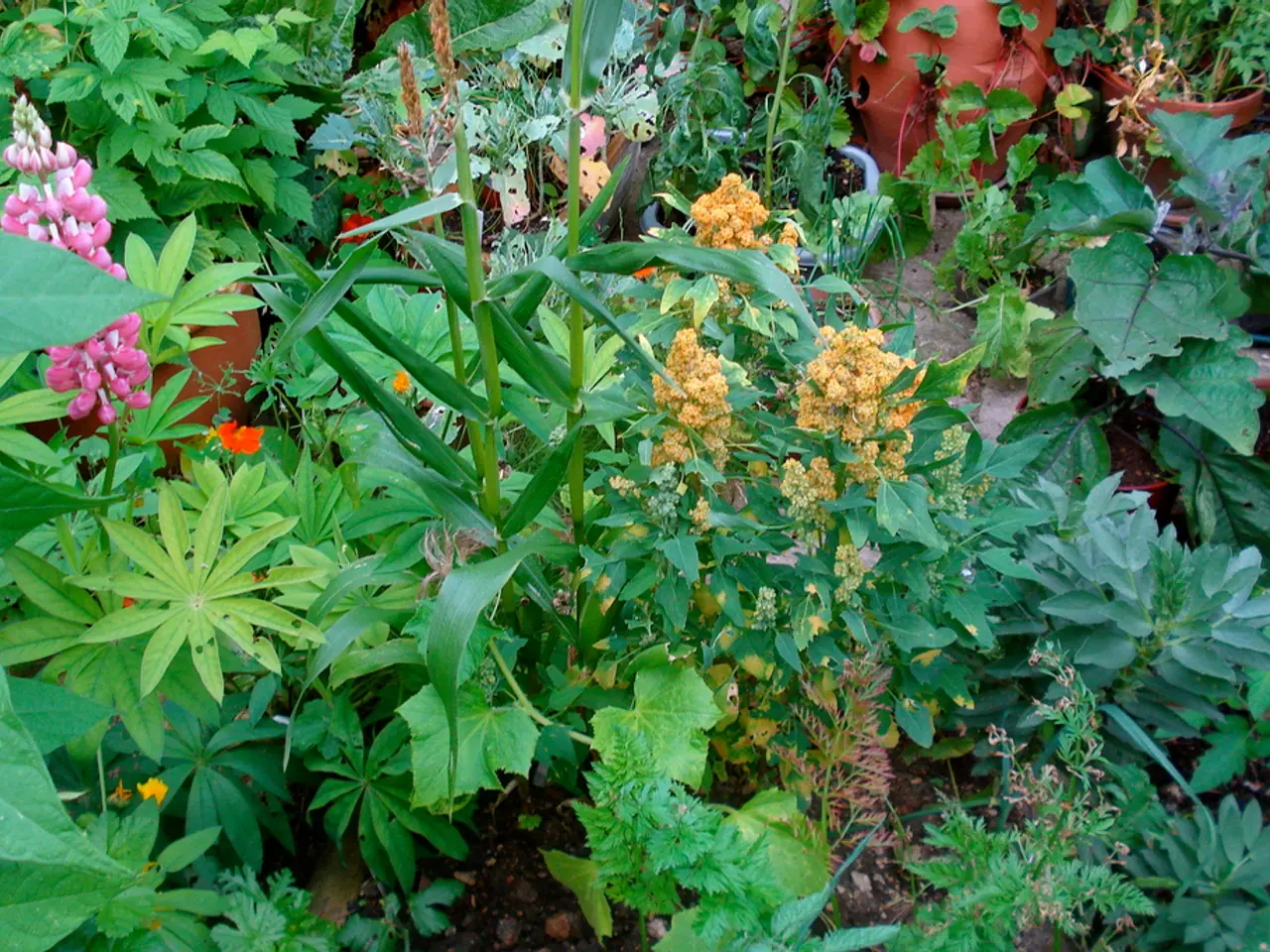Gardening's Numerous Benefits Unveiled
Gardening, an activity that combines physical exercise, mental relaxation, social interaction, and a connection with nature, offers significant health benefits for both children and adults. This hobby, which can be traced back to ancient civilisations, has recently gained renewed attention due to its numerous advantages.
### Physical Health Benefits
Regular gardening activities such as digging, raking, and pushing a mower can raise the heart rate, improving cardiovascular fitness and contributing to better overall health. Moreover, weight-bearing tasks like digging and lifting can lead to higher bone density, benefiting both children’s development and adults’ aging bones.
Gardening also encourages movement and helps maintain muscle strength, flexibility, and coordination. It is suitable for all ages, including those with disabilities, making it an inclusive form of exercise. Furthermore, a study has shown that gardening daily can reduce the risk for poor health related to anxiety or physical limitations in older adults by about 43%.
### Mental Health Benefits
Gardening has been demonstrated to lower cortisol (stress hormone) levels and reduce symptoms of depression and anxiety across different age groups. The satisfaction and happiness derived from nurturing plants can elevate mood and increase a sense of accomplishment.
Moreover, gardening requires focus on the present moment, helping to interrupt worry cycles and promote cognitive rest, which benefits mental well-being. Horticultural therapy sessions have shown improved cognitive functioning and quality of life among participants.
### Social and Developmental Benefits
Community gardening increases neighbourhood satisfaction and social engagement, which is valuable for children’s social development and adults’ community involvement. Gardening also aids stress relief, mental wellness, and mobility for adults with intellectual and developmental disabilities.
### Nutritional Benefits
The consumption of homegrown produce may lead to a higher intake of Vitamins A, B, and C, among others. Exposure to nature and sunlight while gardening may contribute to increased serotonin levels, potentially improving mood.
However, it is essential to cover up with a hat, long sleeves, and sunscreen when gardening for extended periods during the summer to avoid excessive sun exposure.
### Additional Benefits
Gardening can reduce the risk of developing dementia in older adults by about a third to a half, according to studies. Social interaction through community gardens, garden clubs, online forums, and seed swaps may contribute to the dementia reduction in gardeners.
Scientists have started informing the public that regular contact with nature makes people happier, healthier, and more productive. Regular low-impact exercise while gardening makes gardeners less likely to be obese, as found in a University of Utah study.
Robert Louv has coined the term "nature deficit disorder" to describe the lack of nature in modern life. Encouraging children and grandchildren to participate in gardening tasks can make them happier, providing them with opportunities to build stronger immune systems, and fostering a lifelong love for nature and healthy habits.
Engaging in activities such as digging, raking, and gardening at home can not only improve cardiovascular fitness and aid in maintaining bone density, but also fosters a unique lifestyle that intertwines physical exercise, mental relaxation, and a connection with nature. Remarkably, gardening has been proven to reduce symptoms of depression and anxiety, providing an avenue for both children and adults to nurture plants, elevate mood, and experience a sense of accomplishment.




